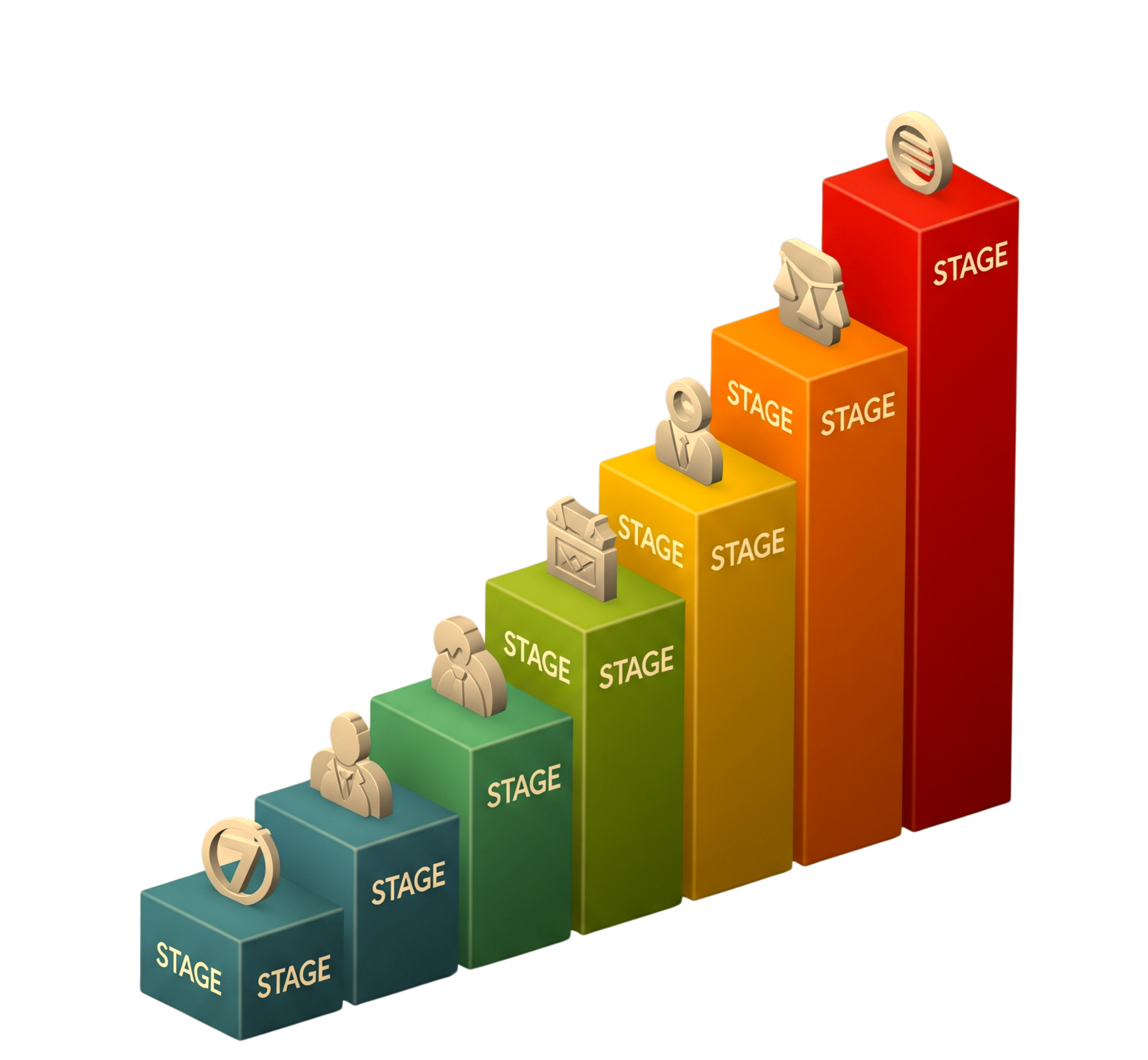Litigation
UNDERSTANDING OF LITIGATION
At IP Tractus, we understand that facing a legal dispute can feel overwhelming. Whether the issue involves a business contract, employment matter, or intellectual property rights, our team provides clarity and strategic direction every step of the way. We simplify complex procedures, helping you make informed decisions and safeguard your interests.

Key Stages of the Litigation Process

1. Pre-Litigation Investigation
The journey begins long before a case reaches court. Our lawyers conduct detailed investigations to evaluate the strength of your position. This includes collecting evidence, reviewing contracts, interviewing witnesses, and analyzing legal risks. A well-prepared foundation often determines the success of a lawsuit.
2. Pleadings
Once the decision to proceed is made, the plaintiff files a complaint describing the facts, legal basis, and remedy sought. The defendant then responds with an answer that may admit or deny claims, raise defenses, or present counterclaims. Pleadings set the framework for everything that follows.
3. Discovery
Discovery is the most information-heavy stage. Both parties exchange relevant materials through depositions, written questions, document requests, and admissions. This ensures transparency and prevents surprises at trial. For businesses, this step can be particularly resource-intensive, making experienced legal guidance essential.
4. Pre-Trial Motions & Hearings
Before trial, parties may ask the court to rule on certain matters—such as dismissing weak claims or excluding unreliable evidence. Pre-trial hearings also establish procedures, timelines, and what evidence may be presented, streamlining the case for efficiency.
5. Trial
If no settlement is reached, the matter proceeds to trial. Each side presents evidence, examines witnesses, and argues their case. A judge or jury then delivers a verdict that carries binding legal effect. For many clients, this stage is the most public and intense part of the process.
6. Post-Trial Motions & Appeals
Even after a verdict, the process may not be over. Parties can file motions for reconsideration or appeal to a higher court if errors are believed to have occurred. Appeals serve as an important safeguard, ensuring the integrity of legal rulings.
7. Enforcement of Judgment
Winning a judgment is only part of the outcome—enforcement is equally important. Our firm assists in ensuring compliance through wage garnishment, property liens, or asset seizure when necessary.
Types of Litigation
Courtroom proceedings can arise in various contexts, and it is broadly categorized into the following types:
-
Civil Disputes: Disputes between individuals or entities, such as contracts, property, or personal injury claims.
-
Criminal Matters: Government prosecution of individuals or entities for criminal law violations.
-
Commercial Conflicts: Business disputes, including breach of contract or shareholder conflicts.
-
Employment Cases: Employer-employee disputes, such as wrongful termination or discrimination.
-
Intellectual Property Cases: Disputes over patents, trademarks, copyrights, or other IP rights.
Why Choose Litigation?
While negotiation, mediation, or arbitration may resolve issues privately, formal court proceedings offer distinct advantages:
-
Legal Precedent – A judgment can establish principles that shape future cases.
-
Enforceability – Court orders are binding and supported by strong enforcement mechanisms.
-
Transparency – Proceedings are part of the public record, ensuring accountability.
Making the Right Choice
Understanding how lawsuits progress is essential for anyone engaged in a serious dispute. At IP Tractus, we combine in-depth legal knowledge with a client-centered approach. Our team guides you from the first investigation through to enforcement, while also advising when alternative dispute resolution may save time and costs.
Whether your case involves business law, employment issues, or intellectual property rights, you can rely on us for both strategic advice and courtroom advocacy.
You Might Also Like
Contact Us
Ready to discuss your legal matter? Contact us today for a complimentary consultation. With our techno-legal expertise, we provide practical solutions, protect your rights, and help you achieve the best possible outcome.



